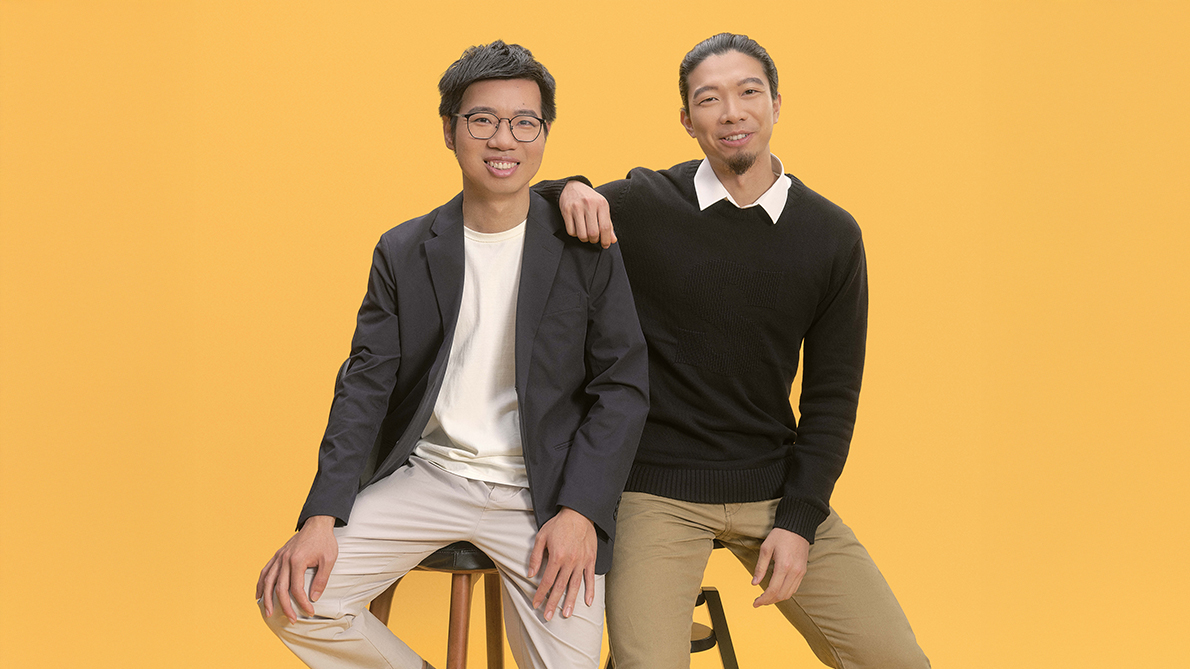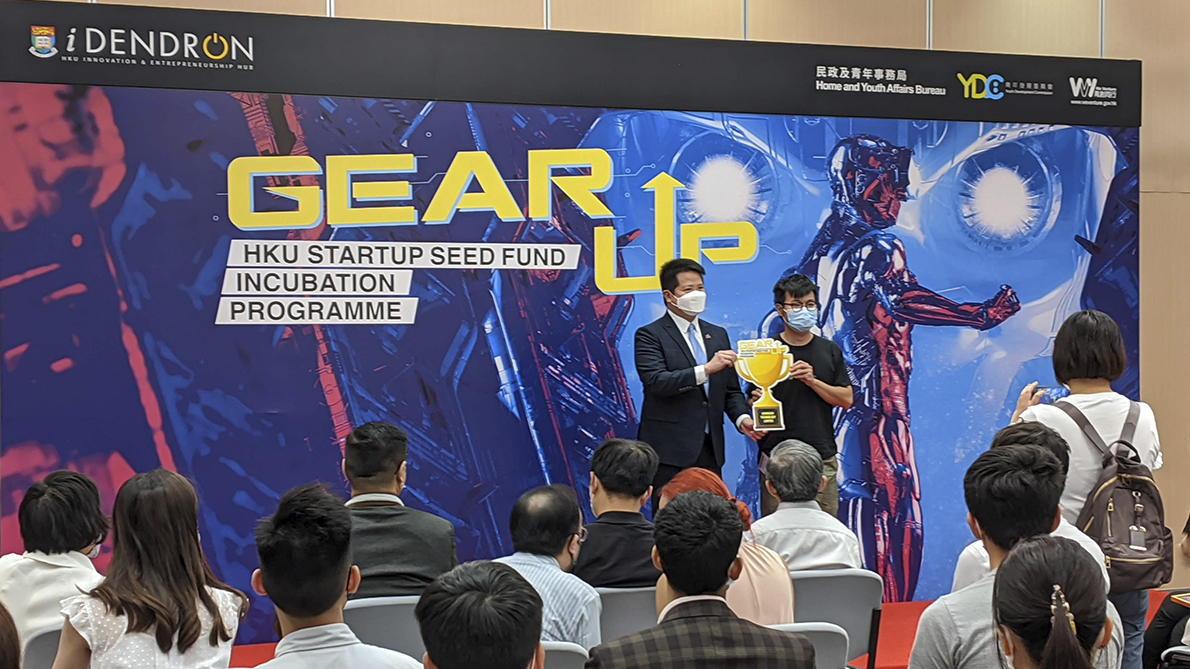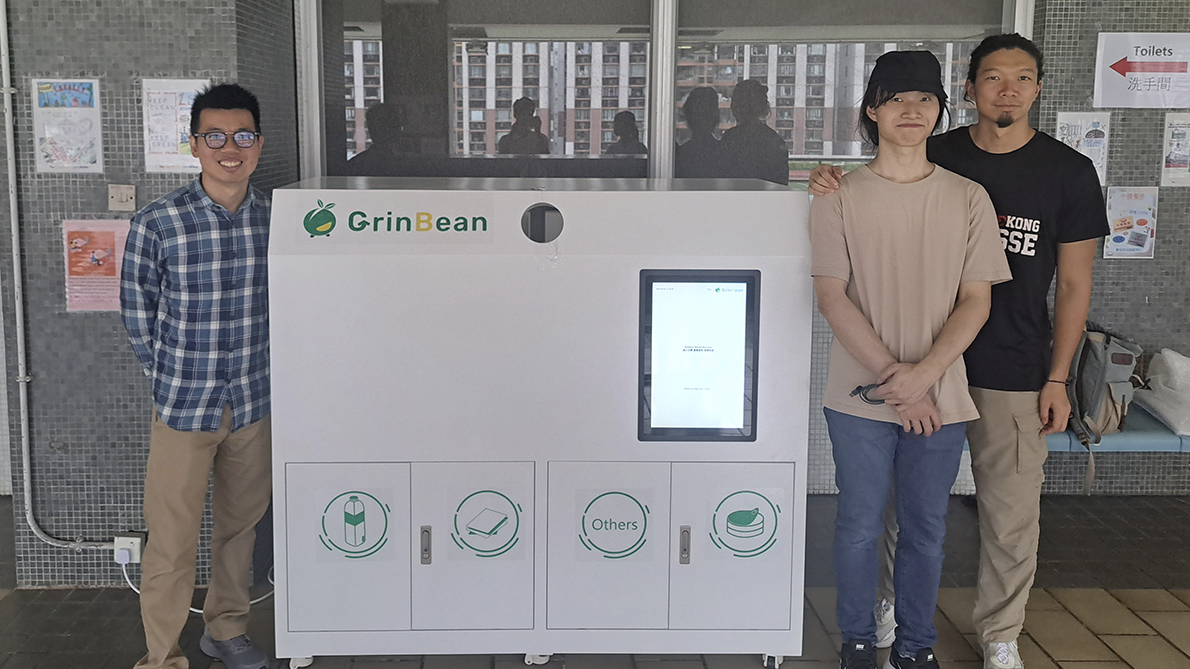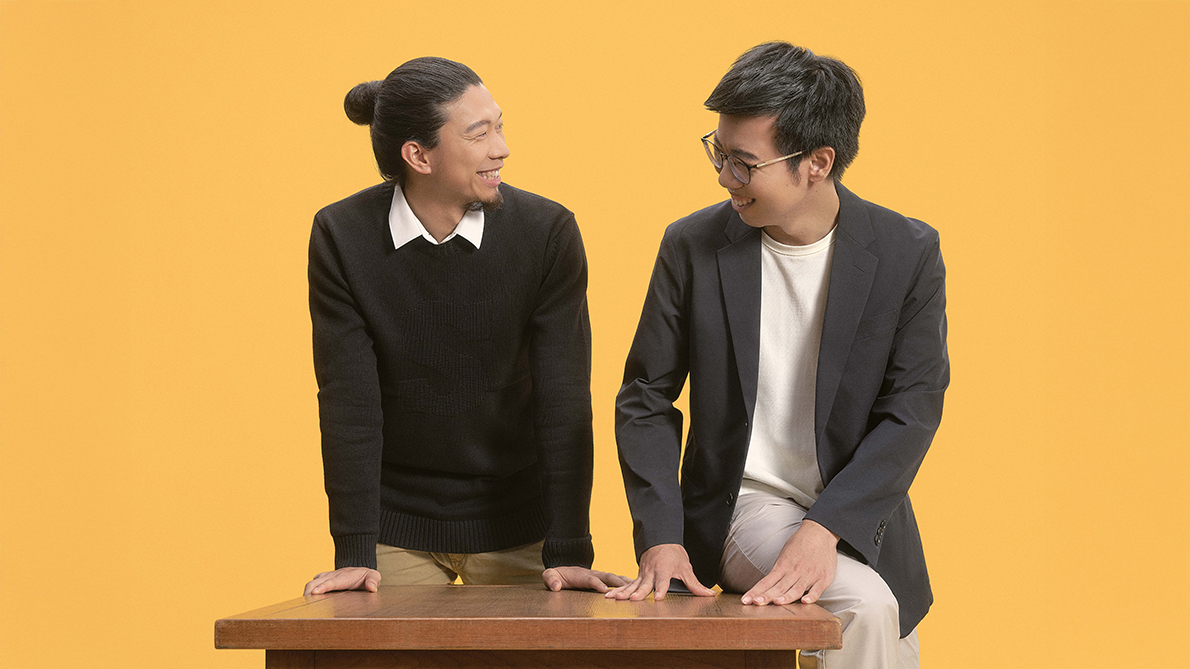Harnessing the Power of AI to boost Eco-friendly Waste Management
James Lam, Archie Loong (GrinBean)

From left to right: James Lam, Archie Loong
“When the ‘why’ is clear, the ‘how’ is easy,” says James Lam Sum Cham, a graduate of The University of Hong Kong. He and Archie Loong Kam Chi are the team leaders of GrinBean, an “innovative recycling” start up that taps into the power of artificial intelligence for waste management.
The idea that would eventually become GrinBean started when James, Archie and other fellow HKUers noticed that some janitors on campus were less than assiduous about following waste separation procedures, and were actually combining recyclables and other rubbish into one bag and sending this off to landfill. They were even more alarmed to learn that this was not uncommon practice in Hong Kong.
As students, James studied mechanical engineering, while Archie was in engineering science and would later go on to complete an MPhil in electronic and electrical engineering. They were drawn to HKU for different reasons: James for its history and university culture, and Archie for its flexible curriculum. “This accommodated my interdisciplinary interests. While majoring in materials engineering, I also took many computer science courses to complement my technical skills,” Archie says.
What is striking is that they both credit their respective extracurricular activities for leading them to strike out on the environment-related path they now share. For James, being a resident at University Hall introduced him to students from other disciplines and the activities organised by the University’s General Education Unit (now CEDARS-GE) left a deep impression. “The most unforgettable one was the farm-to-table experience from the rooftop farm on campus. Along with other activities, they shaped me into a person who wants to contribute to sustainability and live a greener lifestyle,” he recalls.
Student-run organisations had a similar impact on Archie, who says, “As a committee member of the Ramblers’ Club, I found that exploring Hong Kong’s natural landscapes was deeply rewarding.” These experiences fostered his commitment to environmental protection, and together with members of the club, they promoted eco-friendly practices and waste reduction. “I wanted to apply my knowledge and skills to contribute meaningfully to sustainability efforts,” he says.
Initially, their ideas on how to address recycling problems came from someone completely outside their disciplines – an HKUer who was studying earth sciences introduced them to spectrometers and their ability to differentiate various types of plastics. However, they eventually found that spectrometers didn’t work for their purposes and started to try AI.
The resources and facilities available from HKU were instrumental in helping their early development, including the iDendron (now the Techno-Entrepreneurship Core) incubation programme, Techathon 2020 and the Gear Up programme. “iDendron, as it was called then, provided us with enormous support in sustaining our business. We still remember spending our weekends at the iDendron meeting room, discussing new ideas and working on our prototype. The Gear Up programme gave us funding to sustain our company at the early stages when we still didn’t have many prospects,” James recalls.
They soon decided to pursue the development of an automated mechanism for waste separation using AI. “Our auto-sorting machine combines AI-powered image recognition with mechanical systems to efficiently sort recyclables. The process starts with a camera that takes clear images of recyclables, providing the raw visual data the AI needs to identify each item. Once the AI identifies the item, it sends instructions to the mechanical sorting system,” says James.
“We started with a well-tested open source model with our proprietary dataset,” Archie adds. “Each image is manually annotated by our team and labelled with the type of recyclable it shows.” This careful labelling ensures the AI learns from accurate, high-quality data. The model is then trained to classify items based on visual features. “We fine-tune it to improve accuracy, testing it with new images to ensure it can handle real-world variations,” he says.
“It takes a village”, the saying goes, and this has certainly been the case for GrinBean’s growth. While initially they were greatly helped by the intellectual expertise of Professor Xiaojuan QI in the HKU Department of Electrical and Electronic Engineering, they found support and encouragement from many other quarters too.
“In the beginning, we started our prototyping within HKU, at Jockey Club Student Village III’s New College and at University Hall. We’re grateful for the support we got from the then HKU Sustainability Officer and tutor at New College as well as the hall offices of both places,” James says.
But they understand that they are part of a larger community of like-minded individuals where there is both competition and collaboration. “While most recycling companies in Hong Kong share the same goal of reducing waste going to the landfill, they often have a slightly different focus. However, many also provide one-stop services, meaning they’ll collect all kinds of recyclables from customers,” says Archie. This creates a network where companies depend on each other. “Our role is more like a sorter in the front end of the value-chain to ensure the materials are ready to be processed efficiently,” says James.
“Of course it’s great to see how companies in the business grow over time and that we’re all supporting each other. Growing a green business in a city where waste is often neglected is difficult, but we are not alone,” James supplements. “Recycling is perceived as a labour-intensive, low-tech industry. By closing the gap with technology, GrinBean will not only improve operational efficiency, but also forge a stronger connection across the recycling value chain, and we hope that this will lead to a higher recycling rate.”



